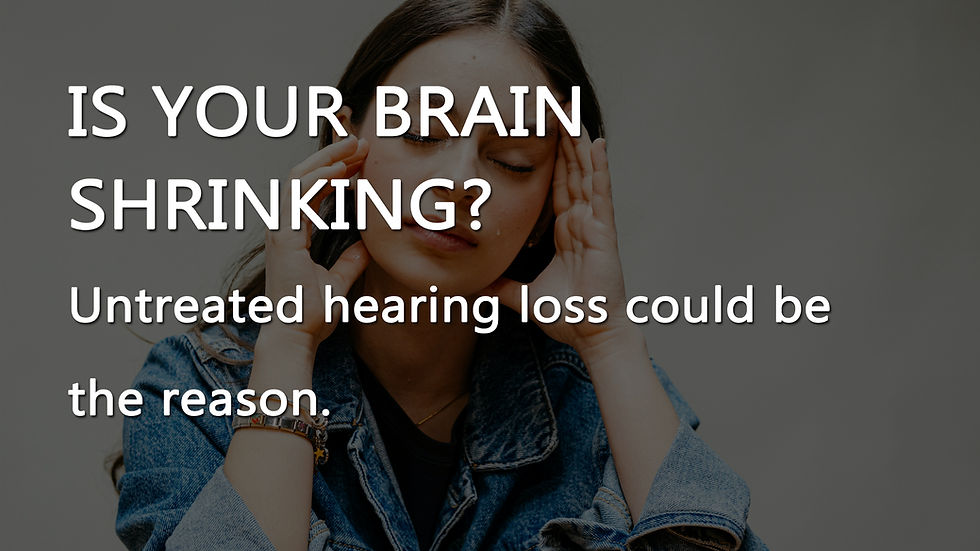Tinnitus; Is There A Light At The End Of The Tunnel?
- Elisa Nuevo Vallín

- Feb 1, 2018
- 3 min read
Updated: Feb 1, 2024
From the number of people we come into contact with in our line of work we have come to understand that it is very normal to feel fearful and insecure about Tinnitus, the ringing in your ears or strange noises you cannot put your finger on, but it is also important to be aware of what it is or how you can support yourself. Let’s try to get the most information we can to prevent the effects of tinnitus or help ourselves to not make it worse.
Be conscious of the symptoms, causes and available treatments and your quality of life will substantially improve.
Tinnitus is an awareness of sound in the ears or head (ringing, buzzing, hissing, chirping or whistling sounds) which is not from an external source and appear to come from inside the body itself.
An estimated 10% of the UK adult population experience tinnitus frequently. Around 5% find it affects their quality of life.
TINNITUS SOUNDS:
So what kind of sound would you hear if it’s a case of you developing tinnitus we ask? The table below shows some of the sounds people with tinnitus hear:

Watch this video about tinnitus sounds, produced by Tinnitus Talk Support Forum (video hosted by British Tinnitus Association):
CAUSES:
There are many contributing factors that are involved in the development of tinnitus:
Hearing loss
Exposure to loud noise
Ear infection
Disease of the ear
Injury to the ears or head
Side effect of medication
Emotional stress and fatigue
Tinnitus can worsen for some people if they drink alcohol, smoke cigarettes, consume caffeinated drinks or eat certain foods. All things to consider.

SOLUTIONS:
If tinnitus is determined, then treatment can be quite focused, but if the cause is never found, don't worry, there is still hope for successful treatment:
Some hospital ear departments provide specialist tinnitus clinics that can offer a range of treatments. Biofeedback, relaxation training, counselling and individualised psychotherapy helps manage stress and helps you change your body's reaction to the tinnitus sounds. Tinnitus Retraining Therapy (TRT) combines counselling with special background sounds designed to help people suppress the sounds of their tinnitus.
Special hearing aids, electronic masking devices or both are often used when other methods have failed to achieve control. Cochlear implants and cochlear stimulation devices are being investigated for severe, intractable tinnitus cases. Complementary treatments such as hypnosis, acupuncture and chiropractic adjustments can help reduce stress levels to help you cope with tinnitus.
Antidepressant medication can be helpful for people with tinnitus if they experience depression, and these may be prescribed and combined with counselling.
Lifestyle changes are very important for those with tinnitus:
Caffeine (coffee, teas, caffeinated colas and chocolate) along with nicotine are some of the most common tinnitus aggravators and should be limited.
Aspirin, especially higher doses, can cause or make tinnitus worse. If you are taking aspirin on the advice of your doctor, seek medical advice about a suitable alternative.
A low-salt diet is also recommended by many healthcare providers and watch the sodium content of the foods you eat.
A positive and optimistic attitude can help to reduce the impact on your life and has a certain impact on your condition :)
Do you suffer and have you found a reliable solution? Please do share with us your experiences as they can and will help others.





Comments